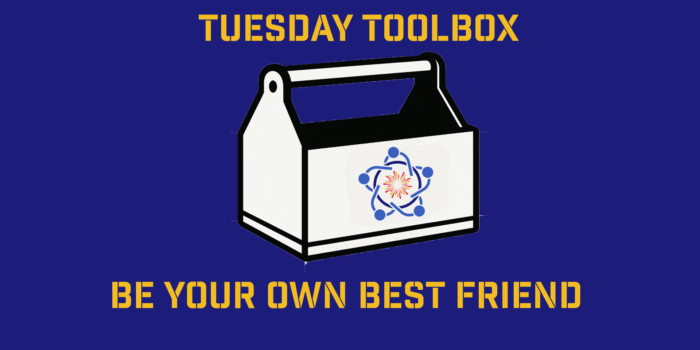My Wednesday Wish for You: To Be Your Own Best Friend We often push ourselves harder than anyone else ever…
It comes down to being human, treating folks like humans and showing your humanity.
Change is hard. Surprise transitions are even more complicated, and everyone deals with them differently. For example, the Covid-19 pandemic weighed heavily on people in different ways–some had to suddenly homeschool their kids–something for which they felt woefully unprepared. Others had eldercare responsibilities, and many got sick or worried about their families falling prey to the pandemic.
The latest attacks on Ukraine are affecting people in different ways. It is disheartening news that confirms the fragility of freedom and peace for some. But unfortunately, the situation is all too real for others as they have family members and friends in the region, and the conflict has a face and name attached to those in its midst.
The worry and fear weigh heavily on people in what we refer to in adult learning as a cognitive load. Knowing how to mentor or lead those with varying cognitive loads requires self-reflection and actualization in a manner in which we may not be familiar. If ever there was a time for leaders, colleagues, and mentors to increase one’s emotional intelligence (EQ), it is now.
Knowing how to mentor and lead those dealing with varying cognitive loads requires frank conversations and a readjustment of expectations, again. It’s the same storm we are in, but not everyone has the same equipment or is close to its eye.
Ask your mentee, colleague, or direct reports how they are doing what is concerning them today. Listen without offering advice. Sometimes people just want to be heard and unload their worries.
Acknowledge
Ignoring the current situation is not going to make it go away. Instead, acknowledge and ask people how they are doing or if they have family in the region.
Adjust stressors
We are in the midst of an unyielding and stressful time. Therefore, allowing people some grace to deal with the situation and not worry about work may be appropriate.
Show your imperfections
If you are concerned or unable to fully focus, share it with your team. By doing so, you permit them to follow in kind. Your team will appreciate your actions, and you will be viewed as someone who understands.
Dr. Deborah Heiser, the CEO of The Mentor Project, recommends reaching out to lateral mentors for support.
“Our lateral mentors are often our friends and are individuals we feel less pressure and are most comfortable showing vulnerability because they do not have a stake in our job. We can talk openly about our concerns and get comfort and support in times of stress when we are able to rely on someone we feel comfortable venting to, talking openly, and sharing concern. Lateral mentors, mentors with expertise who are not our bosses or on a hierarchical trajectory with us, are a welcome safety net not only for work related problem solving, but emotional problem solving as well.”
Dr. Sanjay Saint, a physician and premier expert on mentoring, offers sage guidance:
“As a mentor, I try to remind myself of the powerful quote from the late Robin Williams: ‘Everyone you meet is fighting a battle you know nothing about. Be kind. Always.’
“When such battles are in the daily newsfeed it is perhaps easier to be supportive of what your mentees may be experiencing. Such battles, however, are often deeply personal – illness, family strife, economic anxiety – and hidden from view. I have yet to have a mentoring experience (as a mentor or mentee) in which kindness and compassion didn’t help.”
No one is expected to be a hero now. These are tumultuous times, and people are under incredible strain, which they are handling differently. A one-size leadership or mentoring approach will not work now. Instead, treat each person as an individual, listen more than you talk, and show compassion.



